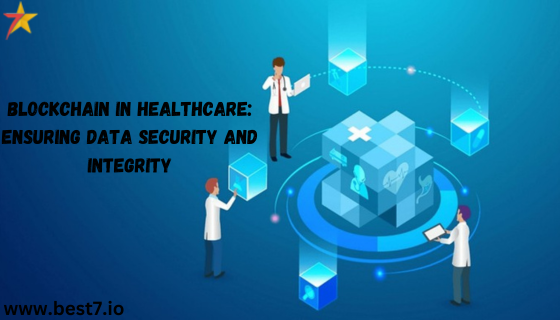
Blockchain technology in healthcare is catching up as a revolutionary one, along with security and reliability of the data in digitized world today. Decentralized technology helps to protect health information, create patient understanding and bring efficiency to operations for healthcare providers. In healthcare, blockchain is much more than just a trend — it represents an essential paradigm shift in the way data of any form must be managed and innovative health care solutions are produced.
Introduction to Blockchain Tech
At its core, a blockchain is essentially a decentralized ledger that concurrently and securely records transactions across several computers. This has the excellent feature of data once entered is independently verifiable meaning it cannot be modified retroactively without the consensus of the network. This immutability of a block is very important in health care as patient records are meant to be tamper proof.
Reducing Fraud and Enhancing Security
The use of blockchain technology in healthcare will reduce fraud in processing the data and leads to cryptography security. The healthcare space has much to gain from blockchain solutions, especially as the need for secure and efficient data handling continues to expand.
Enhancing Data Security
In healthcare, we are understandably concerned about data security because of the high value and vulnerability of patient information. The average data breach cost in the healthcare sector skyrocketed to $9.42 million in 2021, says the Ponemon Institute which illustrates that strong cyber security solutions are more crucial than ever.
Blockchain, a transparent distributed ledger system that is difficult to change once data has been entered is real because it can be utilized as secure frameworks for storing and sharing health data. Since the patient data is stored in distributed fashion, the hacker risk gets very low from penetration and data leaks.
All this data is encrypted and tied to the past transaction so that no one can alter it without being detected. At this level, people use their sensitive data which helps in building the trust among the patients with the medical authorities by making them more comfortable that their information is secure.
Privacy for Patients
Apart from improving data security, blockchain technology is also instrumental in ensuring patient privacy. Many existing systems use a central database which can be attacked. On the other hand, blockchain offers various protection benefits due to its decentralized nature as one has better control over who can access his/her personal health information.
This lowers the friction of data collection and enables patients to control their own data and how it is shared with healthcare providers. In the meantime, 79 percent of patients in a recent MIT Media Lab survey would rather have their health data under their own control so they can share it selectively and continue to protect privacy. Blockchain enables healthcare organizations to provide autonomy to patients while keeping data private at the same time.
Ensuring Data Integrity
In healthcare conditions, the term data integrity is crucial because the correct data or right information must be available in every condition to cure patient accurately. Due to the immutability of blockchain technology, once someone records data on it, they are kept forever unchanged.
This ability is of particular importance when deploying such classifiers in electronic health records (EHRs), whose application can impact the clinical decision making by documenting a patient’s medical history accurately.
The results reveal that using blockchain technology to automate the data quality management processes can provide a significant impact on improving the accuracy and reliability of the research datasets by minimizing human errors.
Blockchain tech is not only able to automate some data entry processes but also keeps complete records in a secure way, which will inevitably reduce the chances of mistakes that can be harmful for the patient.
Improving Interoperability
While healthcare is still struggling with interoperability, these disjoint systems impede the frictionless exchange of information between providers. Blockchain technology can solve this problem, by offering a common platform for data sharing.
Blockchain enables providers to work together more effectively and brings various healthcare systems in their communication loop resulting in better patient care.
According to a paper in the American Journal of Managed Care, employing blockchain solutions could allow healthcare providers to save as much as 50% on administrative costs related to data management. Indeed, this is an example of cost-effectiveness that allows for the broader sharing, and use, of data across healthcare networks with minimal-to-no impact on existing IT systems.
Helping Secure Transactions
Blockchain technology provides authenticated and protected transaction functionality across the healthcare ecosystem. Smart Contracts are self-executing contractual states, and one of their uses can be in automation for billing, insurance claims or consent management.
For instance, imagine a patient checks into a healthcare provider — smart contracts can confirm insurance coverage almost immediately and process payments instantly. This allows the integration of additional automation (to alleviate administrative burden) while simultaneously lowering the risk for fraud and billing edits.
According to an Institute of Medicine report, nearly 30% of the healthcare spending goes into administrative costs that can be reduced considerably with blockchain solutions.
Professional Development for Transparency in Healthcare
Trust between patients and healthcare providers is deeply rooted in transparency. Blockchain technology allows for all transactions to be transparent and publicly held within a tamper-proof system. They can check their health data and that of the history of their medical records perfect to make sure they are descriptive up-to-the-minute.
Applications of blockchain in healthcare have the potential to increase accountability from providers. According to a Healthcare Information and Management Systems Society survey, 67% of healthcare professionals think blockchain technology will improve the transparency and accountability in operations.
Thoughts on Addressing Cybersecurity Threats
Cybersecurity threats remain a major challenge as healthcare organizations increasingly deploy digital health solutions. It provides a powerful shield against hacking through the implementation of blockchain technology. One of the top benefits that blockchain brings to cybersecurity is decentralization and encryption — two powerful mechanisms that protect information from nefarious cybercriminals.
This may spawn further research showing that less security breaches will occur, and blockchain as a mechanism will actually result in more secure operations. A reduction in the average cost of a data breach in healthcare meaningfully drives a safer environment for patient data management.
The Future of Blockchain Technology in Healthcare
The future of blockchain technology seems bright as the healthcare landscape transforms in front of our eyes. This will ensure that its ability to revolutionize patient information management, increase safety and ultimately health outcomes will be adopted on a larger scale.
This highlights that more and more people are coming to realize the benefits of blockchain technology, a fact that is reflected in the worldwide blockchain in healthcare market being estimated to grow to $5.61 billion by 2025.
In addition, the features of blockchain as well would be extended with other new technologies like AI and IoT making its integration even more interesting. This will support more advanced data analytics, predictive modeling and personalized medicine to dramatically change the way healthcare is conducted.
Blockchain will play the role of an underlying technology in emerging healthcare domains, ensuring the security and integrity of data while maintaining patient trust with numerous blockchain applications entering into future models of healthcare. Blockchain-based solutions can help us achieve this goal and not only improve operational efficiency, the transition will enable patients to own their health information.
Supporting Healthcare Innovation
The use of Blockchain will contribute to the continuous healthcare innovations. Through the secure sharing of information, blockchain can theoretically make it easier to conduct research into infectious diseases and clinical trials since data from any creditworthy research institute could be used.
Blockchain will be used in future clinical research projects to enforce data integrity and trial verifiability. A new study from the World Economic Forum suggests that blockchain can accelerate time to market for drugs up to 30%, enabling faster access to life-saving treatments.
The healthcare industry is amid a rapid transformation and integration of blockchain technology has the potential to revolutionize the future landscape.
Factor of Data Security and Integrity
Healthcare providers need secure and reliable access to health records for improving patient care outcomes, trust-based services, supporting an innovative delivery of healthcare. The promise for a blockchain-enabled world of healthcare is bright, and the journey on the way promises to be fascinating to observe as further use cases will be discovered.












